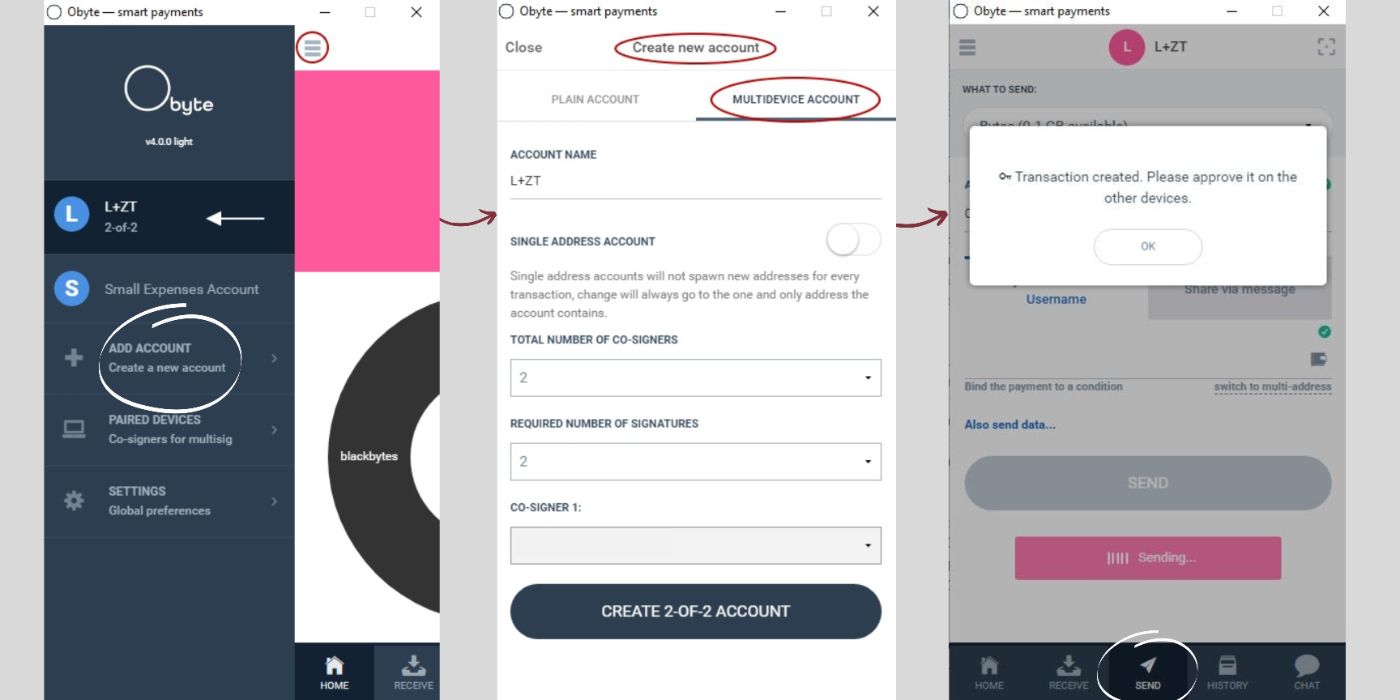Educational Byte: What Happens to Someone's Crypto if They Die?
Picture this: your family finds out you had thousands or millions in Bitcoin, Ethereum, or Obyte. They’re excited at first, then puzzled, then alarmed when they realize no one knows how to get in. That’s because crypto isn’t like a bank account where you can walk in with a death certificate. So, no potential crypto inheritance there.
To use crypto outside centralized exchanges, in your own non-custodial wallet, you need something called a private key. This is a long code or a string of random words to access the funds. Whoever has these private keys can spend the coins, and without them, no one can. Not your family, not the wallet company, not the developers who built the network. There’s no “reset password” button.
This is part of the charm of decentralized crypto networks: you’re in complete control. No middleman, no government, no central authority can limit or freeze your accounts. But it also means if you’re gone and your loved ones don’t have your keys, your funds might as well be locked in a vault drifting through space. Whether your coins are in Bitcoin’s blockchain or Obyte’s DAG, the rule is the same.
\
When the Keys Are Gone
Once the private key to a self-custody wallet is lost, the coins remain on the ledger but can never move again. That’s not a figure of speech; it’s permanent.
One of the most famous cautionary tales is Gerald Cotten, founder of the Canadian exchange QuadrigaCX. In 2018, he died unexpectedly in India. Reports say he was the only person with access to cold (offline), self-custody wallets holding about $190 million in customer crypto. Those funds have never been recovered, and there’s a documentary with all kinds of speculations about it.
https://www.youtube.com/watch?v=kcoazNFSliE&embedable=true
\ Then there are the early Bitcoin users who misplaced their private keys or passwords and now watch, helpless, as their wallets sit on the public ledger with millions inside. One of them is the programmer Stephan Thomas, who lost the password to his hardware wallet and thus the access to 7,002 BTC —around $819.2 million at current prices.
If your crypto is stored with an exchange or company that holds the keys for you, your heirs might get access after a legal process. This especially applies to platforms that handle crypto but offer typical email and password accounts instead of private keys. However, for non-custodial wallets, which many see as the true crypto experience, no amount of court orders will help without the key, because no one else has access.
How to Make Sure Your Crypto Lives On
You don’t need to be a millionaire to take precautions. Even a small amount is worth protecting. Here’s how you can make sure your coins don’t vanish with you:
\
-
Write a crypto will. Include clear instructions, wallet locations, and recovery phrases in a legal will. Look for lawyers who understand digital assets. \n
-
Use multi-signature wallets. These require more than one key to move funds. You could hold one and give another to a trusted person or executor. To set up a multi-sig wallet in Obyte for inheritance, first install the wallet app on each signer’s device, then pair them in the Chat tab. From the main menu, create a “Multidevice account,” choose your co-signers, and set the required approvals. Make sure to backup your wallet, then, to include this multisignature account.
\

\
- Store recovery info securely. Safe deposit boxes, encrypted vaults, or splitting the phrase into parts kept in different places can work. Never send private keys in plain text over email or messaging apps. You can create a physical textcoin from the Obyte wallet, store it somewhere safe, and leave instructions for your loved ones. \n
- Set up a dead man’s switch. Some services, like Coin Legacy or Sarcophagus, will release information to your chosen contact if you stop checking in for a set period. \n
- Pick a tech-savvy executor. Someone who can follow your instructions and understands how wallets work is worth more than a distant relative who will just Google “how to open Bitcoin.” \n
Planning now means your coins will become part of your legacy, not just part of the crypto folklore.
\
Featured Vector Image by redgreystock / Freepik
\n
También te puede interesar

A whale holds 62.148 million XPL and currently has a floating loss of $14.29 million

Beijing's first digital RMB-backed loan is launched
